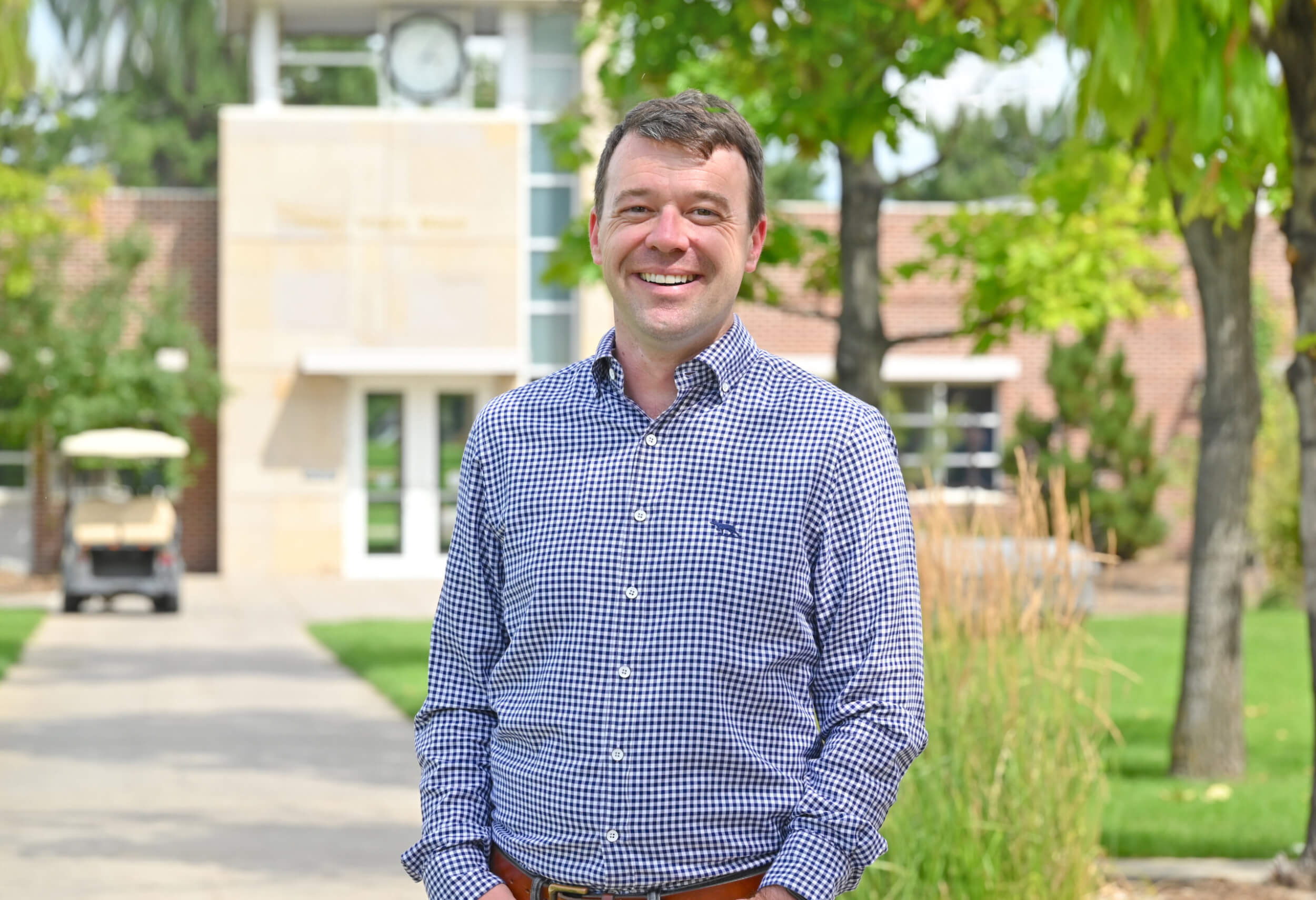When he was in first or second grade, Nick Malick wanted to be the ice cream man; in high school, he thought he’d be a teacher; and later, in college, he studied philosophy and writing. But now, as Colorado Academy’s new Middle School Principal, Malick may have found the role that perfectly swirls these disparate flavors together: the intellectual and emotional worlds teachers unlock in the classroom, complemented by the scholar’s deep curiosity about human beings and the ways we communicate, sprinkled with the joy that surrounds the ice cream man’s truck.
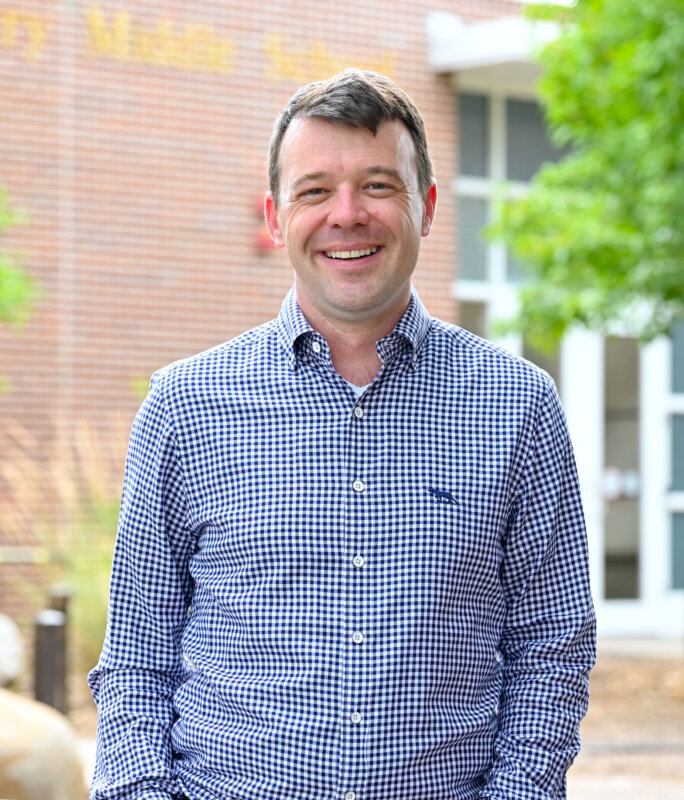
“What runs through all of these is my fascination with people,” Malick explains. “Even when I was a teacher of writing or history or literature, what I most enjoyed was working with students on the fringes of class time—helping them with social issues, supporting families who were trying to figure out their child. Those were the moments I really found what I was passionate about.”
Middle schoolers hold a special fascination for Malick, who comes to CA from the Town School for Boys in San Francisco, where he served as Head of Upper School for around 200 fifth through eighth graders. The developmental changes that occur in the brain at this age, he notes, are stunningly complex, and offer educators an incomparable opportunity to change the trajectory of a student’s life.
Reformatting itself for abstract, higher-level thought after the more task-oriented cognition of the elementary years, the middle schooler’s brain, Malick marvels, is learning to ask not “what is the rule or the process, but why should I follow it?” Children at this age seek out risk and test boundaries as they work to understand themselves socially and emotionally; their heightened feelings, energy, and curiosity lay the groundwork for empathy and a love of learning.
“This is such a central part of children’s development, but, of course, it’s also part of the reason why as parents we sometimes feel like we’re banging our heads against a wall. Every experience they’re having is new, because they’re becoming a new person. It’s a new brain that is interacting in completely novel ways with the world that they’ve always been in.”
Malick’s study of philosophy, particularly the notion of “continuity of identity,” provides the foundation for his approach at this critical juncture. Middle schoolers, he explains, are in some ways rebuilding a fresh sense of their own identity, the narrative that connects their younger self to the developmental changes and evolving relationships they are experiencing in the present. Fortunately, children at this age aren’t jaded about the world; they haven’t yet had the time to develop cynicism or negativity about this process.
“And if you do it right,” he continues, “if you give them the right opportunities, coaching them through, you can keep that negativity at bay, and you can actually instill a positive outlook as they navigate the world for themselves. What passions they might discover, while significant, are not as fundamental as learning to care about the people in front of them and understanding that you become stronger through your relationships with others. Your classmates make you better.”
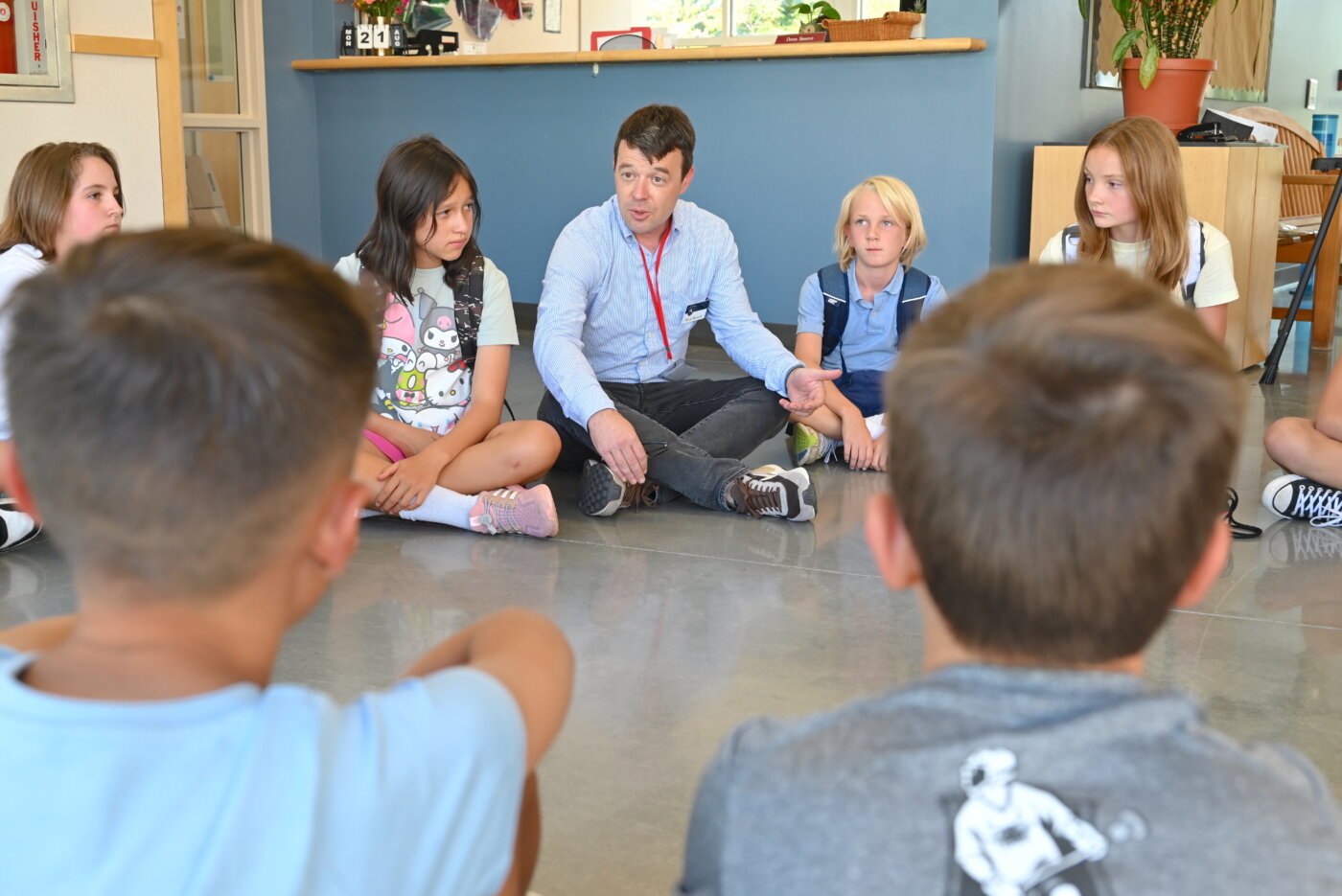
Compassion, in other words, is the superpower that schools like CA can grant to its students. CA offers middle schoolers so many avenues to explore the world academically and through physical activity and the arts. Even more critically, according to Malick, CA creates myriad experiences that encourage students to connect with their peers and their teachers, whether through advisory, clubs, Interim trips, Town Hall meetings, counseling sessions, capstone projects, or one of numerous other opportunities.
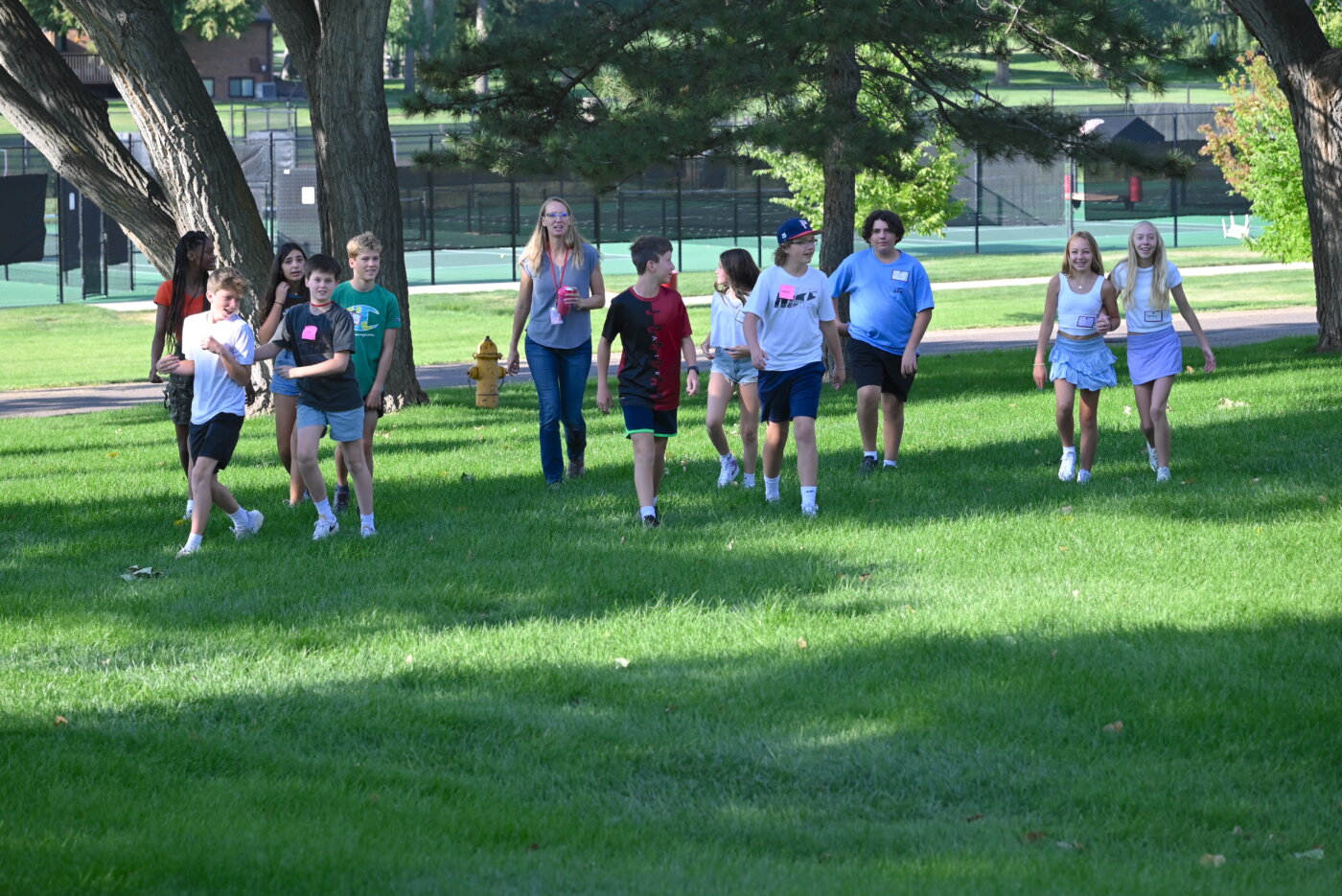
“That’s the brilliance of a school like CA,” he says. “You learn that instead of seeing yourself in competition with others, you can build a network around you to support whatever endeavor you want to work on, and at the same time you learn how to help others and to contribute. Later on, you leave CA with genuine connections that will sustain you through life—people who will pick up the call when you’ve got a problem, people who will perhaps invest in something that you’re trying to build, people who will just talk you through things.”
“That’s incredibly powerful, and it all starts here in Middle School.”
Coastal and global experiences
Malick’s own path to middle school began in San Francisco’s East Bay area, where as a boy he would join his brother and sister to roam around the neighborhood picking wild blackberries overgrowing a fence, or climbing plum trees to reach the fruits they’d use to make jam and pies. With his father trained as an architect, his grandfather an engineer, and his grandmother a world-class nurse and educator who authored an essential medical school text on hand stabilization, it’s no surprise he gravitated toward pursuits such as woodworking and racing soap box derby cars.
“I’ve always loved working with my hands and making things,” Malick acknowledges. Referring to the German concept of Kenntnis, or “wisdom of the hands,” he goes on, “There’s a type of knowledge you get only through firsthand experience. I can tell you how to plane a rough board, for example, but you’re not going to learn that skill until you sit down and do it yourself for a period of time.”
Malick was also a singer, and participating in choir introduced him to world travel. He stayed with families in great cities such as Hong Kong, learning to appreciate and understand what most mattered to others, even if it was well outside his own experience. Once, in Estonia, he remembers his hosts serving him a local specialty of ripe tomato on dark rye bread. Even though he could barely stomach the dish, he says, “I realized sharing this with me meant something special to these folks.”
Malick’s love for travel and new experiences and people took him to Colby College in Maine for his undergraduate philosophy degree, and then to the Tilton School in New Hampshire, where he and his wife both landed teaching positions. They returned to the West Coast again when he enrolled in the graduate creative writing program at the University of Oregon, and they finally ended up back in the Bay Area, where Malick worked in schools for 13 years.
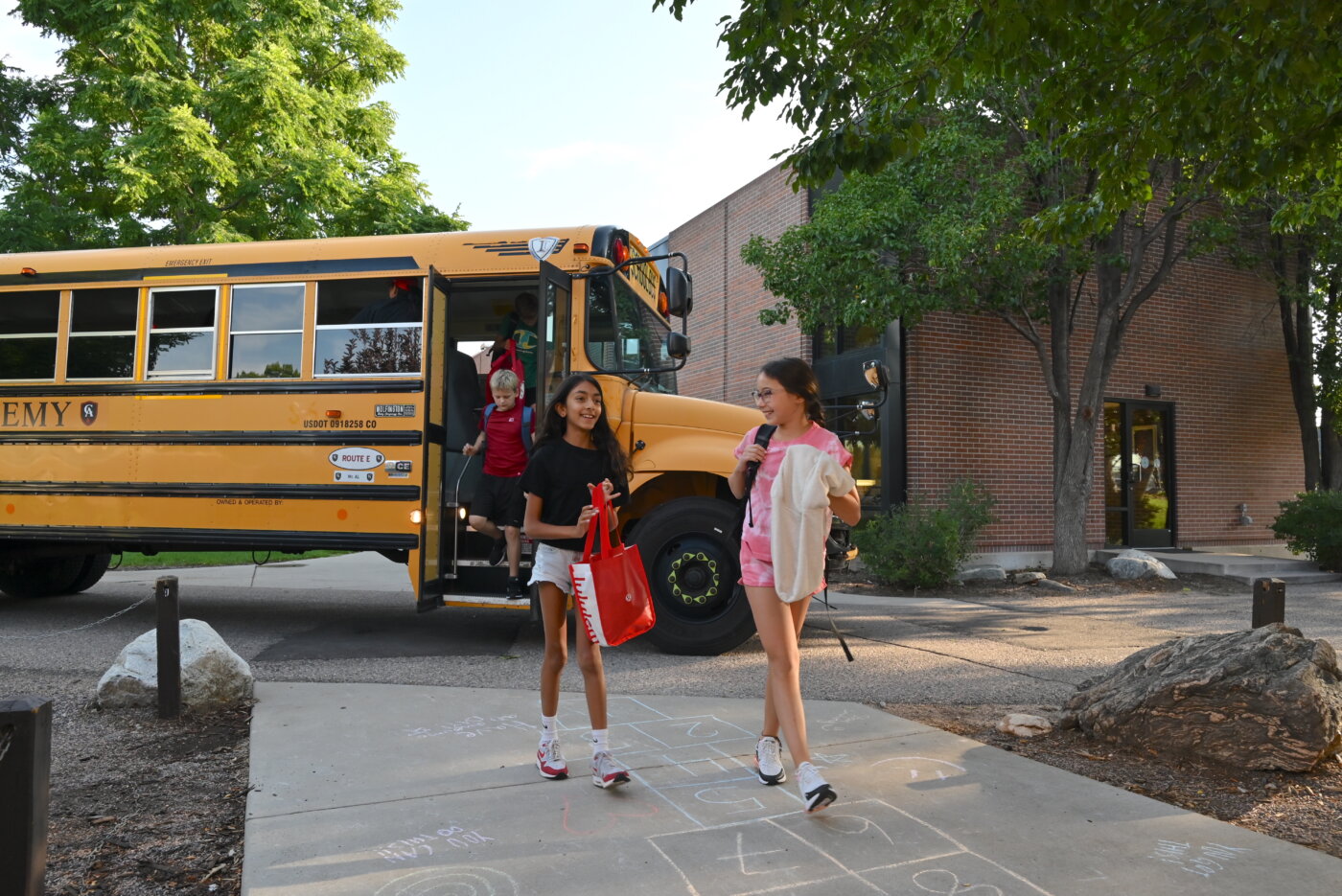
During that time, he found himself enthralled by engaging with middle schoolers. “It was transformative for me to work with burgeoning young adults striving to understand themselves in the face of a culture that tells them what they should and should not be,” says Malick. “My students were hungry to explore interests, find identity, and maintain close companionship with friends, but they often felt compelled to limit their expression. The most challenging part of middle school is finding the courage to discover ourselves while resisting the pressure to conform to the expectations of others.”
These were also the years during which Malick found his passion for working with teachers. “Cultivating happy, healthy, and engaged students requires cultivating happy, healthy, and engaged teachers. In partnership with parents, teachers act as buoyant, joyful guides through the complex and ambiguous reality these children are just gaining the capacity to see. No constituency is more important to living out the mission of a school than teachers.”
A magical beginning
In his first few months on campus, Malick has been encouraged to discover that the themes in CA’s mission statement that first attracted him to the school have shown up wherever he looks.
“We were sort of vaguely thinking about a change from San Francisco,” he recounts, “and one day I got an email about this position. Those words—courage and kindness—just stood out; I was hooked. As a middle school person, that’s exactly where you want to focus.”
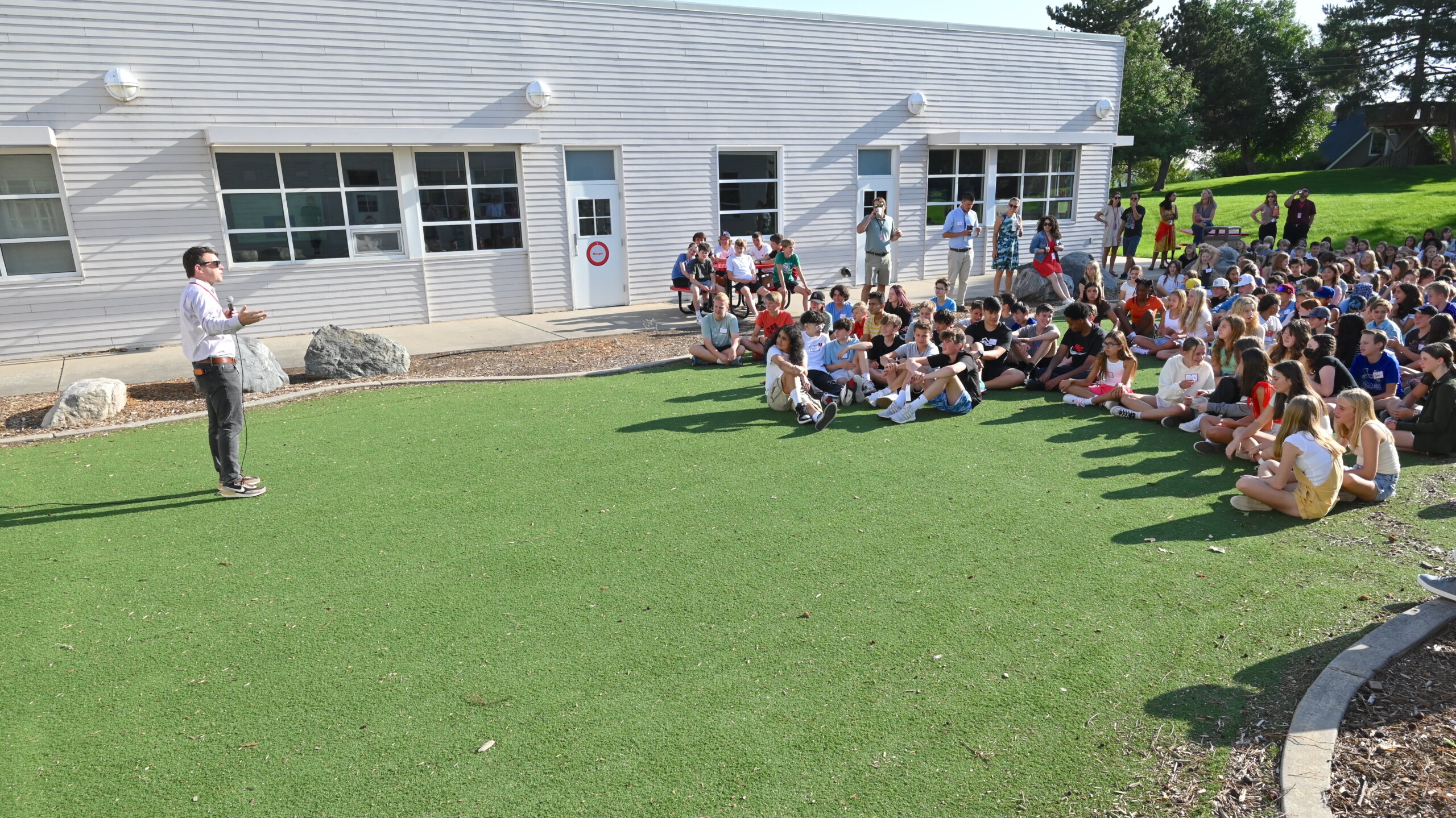
Meeting students, faculty members, and other administrators throughout the spring and summer, Malick has become convinced that “There’s a goodness to the folks here.” He was struck during a panel discussion with Middle School students to hear that one, who had come to CA in Sixth Grade, had been surprised to be welcomed into the community right away. At a summer get together with CA families, another group of Middle Schoolers were overwhelmingly positive when speaking about their experiences.
“The ways that kids are curious and interact with one another here aren’t at the expense of others,” remarks Malick. “That’s rare. There must be something magical happening here.”
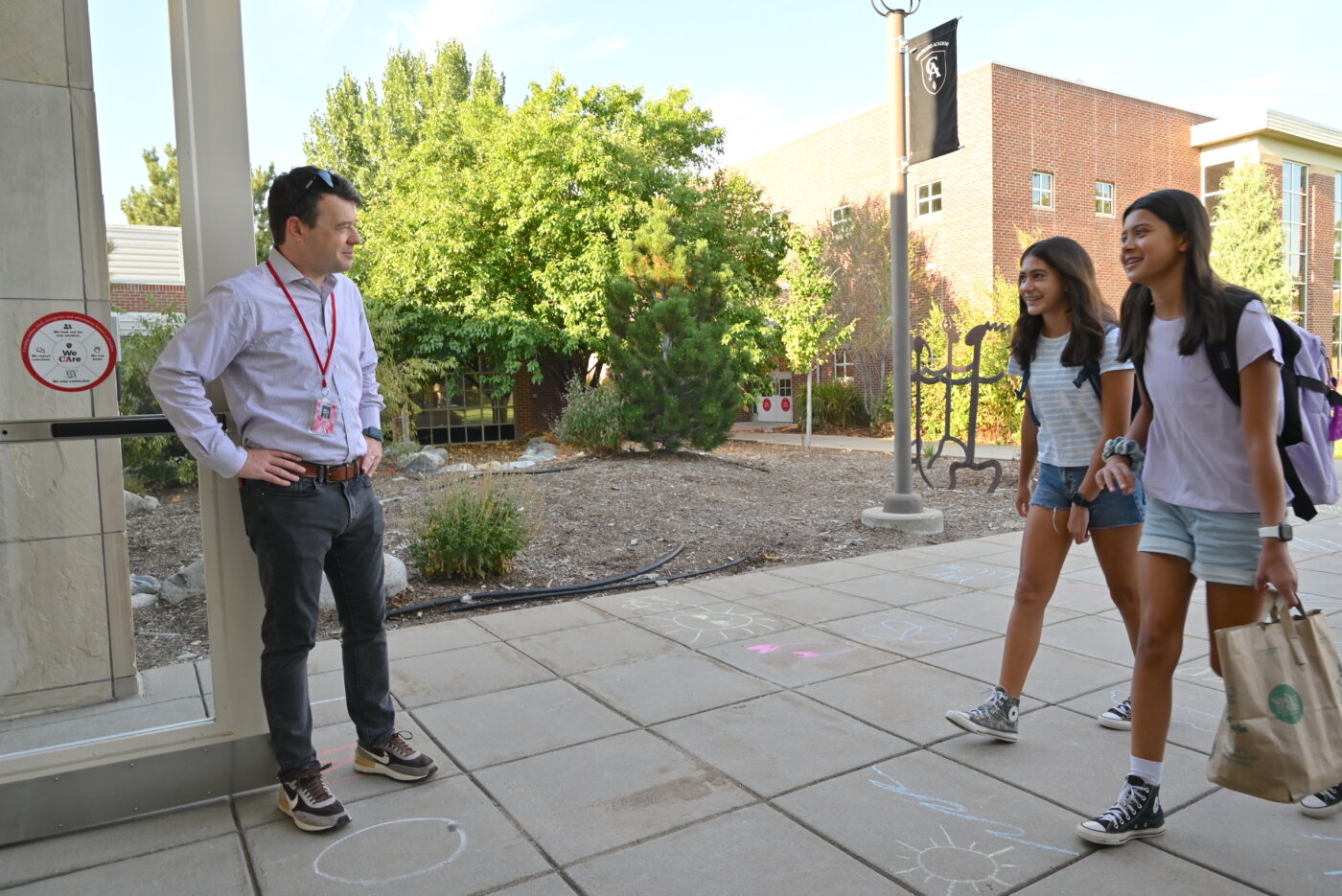
A perennial student of systems, Malick has been excited to meet with teachers to discuss the ways that CA’s kindness, courage, and adventurousness play out in the classroom and across campus. “I’ve been trying to understand what makes CA different, and those conversations have been eye-opening.”
CA’s Middle School faculty members do a “phenomenal” job preparing students academically for the demands of high school, and, Malick insists, they may be even better at doing what’s right for kids.
“You don’t go into middle school teaching for fame and fortune. The teachers I’ve met have real direction; they know how they want to help students and families. As you would expect among a group of expert educators, there’s healthy debate, but it would be hard to say they’re not here for all the right reasons. They’re spending their time and energy, sweat and tears, and probably sleepless nights at times just to make people better. You can’t ask for more than that.”
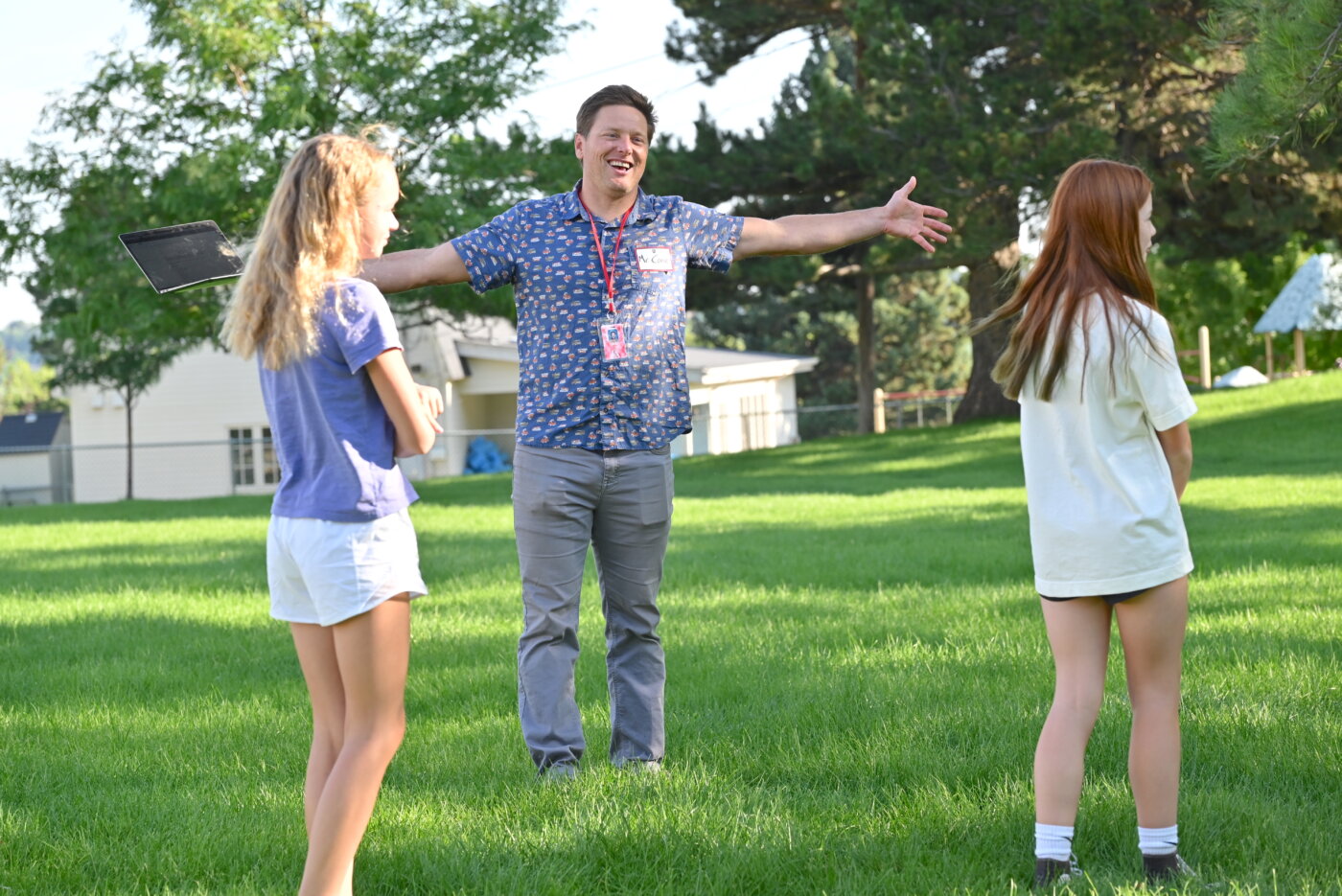
With his faculty, Malick is excited to explore whatever CA needs next. His long track record of work on diversity, equity, and inclusion and social emotional learning suggests areas he’ll be eager to engage. But, he says, “I’m curious about a lot of things in education, and as a leader, I am driven by what I see is most needed.”
One avenue he’s interested in investigating has to do with the notion of purpose in school. “Helping kids see the purpose of what they’re learning in the classroom is really interesting to me.” Take homework as an example. “Why should a student complete homework? One answer is because it’s required. And sure, that’s motivating for some kids. But another way to think about it is that kids are doing homework so they will one day be able to do something on their own with that knowledge. I’m interested in that kind of intrinsic motivation.”
Malick also finds himself fascinated by what he and other educators have observed often happens in the transition from elementary to middle school.
“Most children come from an elementary program where they don’t receive grades. And in that setting, kids seem to want to learn, they throw themselves into things, and they are innately curious. When they hit middle school, and those developmental changes are occurring in their brains, something happens, and a resistance can develop. It’s interesting to think about how we can address that.”
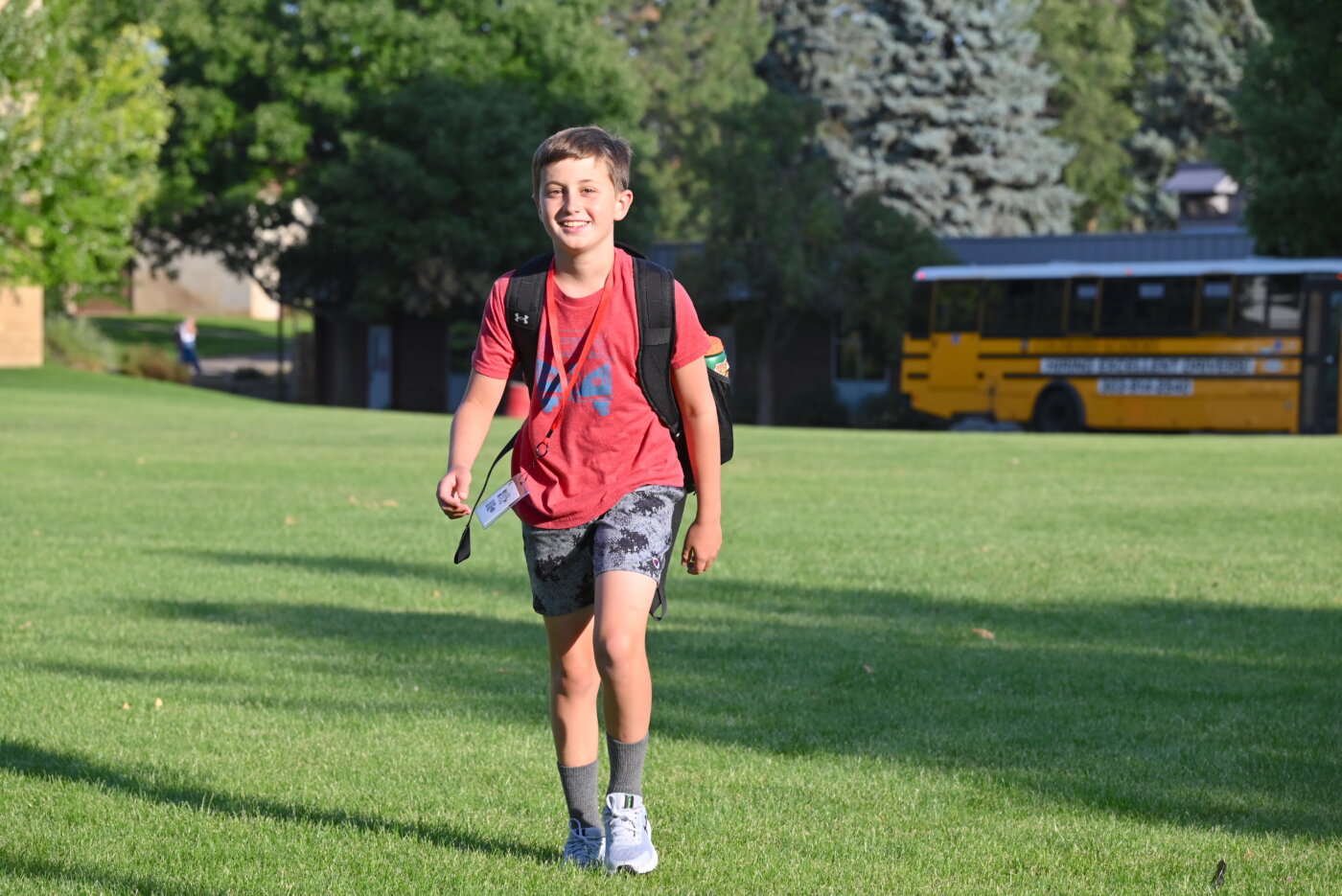
But for the moment, Malick is content to focus on people, spending the first months in his new role observing, listening, and working with faculty to pinpoint what’s needed. He says he feels well prepared for this next step—in many respects due to the generosity of his predecessor, Bill Wolf-Tinsman, who retired as Middle School Principal in June.
“Bill provided me with an unbelievable amount of support, making sure I have what I need to be successful here.”
And in some ways, Malick’s guiding ethos—his insistence that his role is one of supporting students, teachers, and families to be their best selves—is one that Wolf-Tinsman would likely have endorsed.
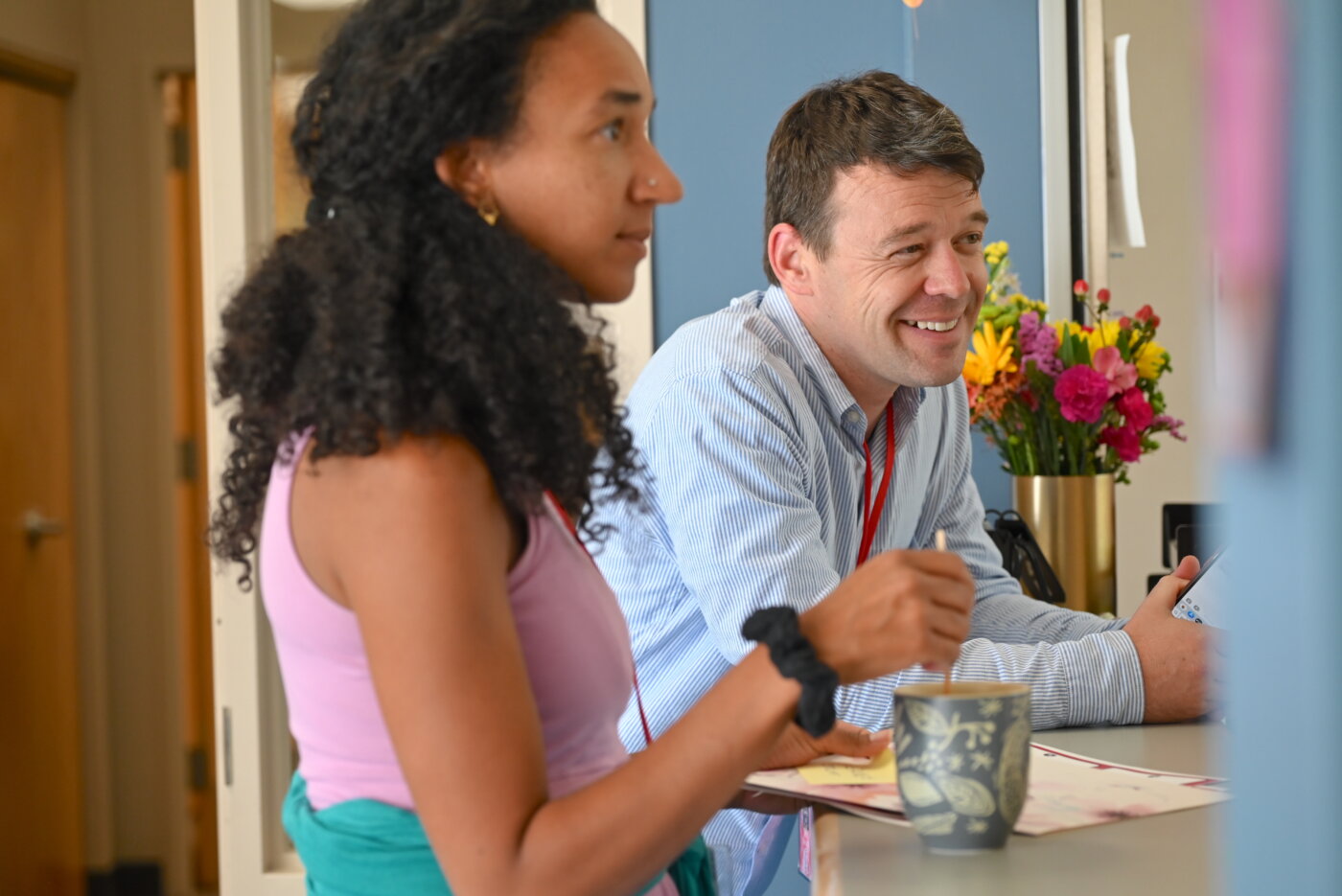
“I always tell myself, and I think Bill would have agreed, that you’re working with human beings who are wonderful, complicated, deeply skilled, and yes, sometimes even flawed—and your job is to support them no matter what. When stumbles happen, you keep in the front of your mind that this is a parent, or this is a teacher, or this is a student, and they need something. What’s their drive, what’s their purpose, and how can I help make things better?”
